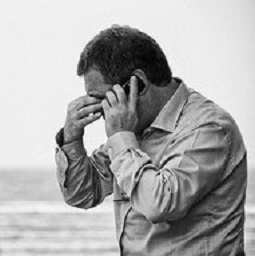The only CEO economic sentiment survey that spans the globe on a quarterly basis, the Young Presidents’ Organization (YPO) and World Presidents’ Organization (WPO) Global Pulse Index, has shown a marginal slip in Australian CEOs economic confidence from 60.1 in April to 59.7 in July.
Why are Australian CEOs sceptical about the future?
CEO confidence in Australia has been falling steadily since October 2010 on the back of growth deceleration in China. However at 59.7, it is still firmly in optimistic territory so there’s no need to panic… at least not yet. The survey results were announced by YPO/WPO, a not-for-profit global network of 20,000 chief executive officers spanning 120 countries.
According to the survey, Australian CEOs are sceptical about the next six months. Many were doubtful that overall business and economic conditions would improve by the end of the year. Less than a third (31%) thought they would be better in six months’ time, while almost one in four (22%) thought they would get worse. You might have noticed your boss is grumpier these days.
However, on the brighter side, fixed investment plans have picked up. Looking ahead 12 months, investment confidence in Australia has increased by 4.7 points to 61.5 in the second quarter. This is the highest level it has reached since April 2011. CEOs in the production sector (manufacturing plus construction) which includes mining, indicated the most aggressive investment plans. Nearly half (46%) said they intended to step up capital spending by at least 10% over the next year.
“First-quarter GDP growth was encouraging, but CEOs still have to navigate choppy macro-economic waters, this is one of the reasons economic confidence amongst CEOs in Australia fell in line with the rest of the world,” explained David Owens, managing director of ROI Pty Limited. Mr Owens is also the chair of the YPO/WPO Australia/New Zealand Region and a member of YPO/WPO’s Sydney Chapter.
“Even so, despite the ongoing challenges in the euro zone and deceleration in China, business leaders in Australia are moving ahead with investments in expectation of sustained sales volume,” Mr Owens added.
What does this decline in CEOs’ confidence level mean?
The results indicate that Australian CEOs were lost between the effects of the GFC and political uncertainty ahead, according to Mr Tudor Marsden-Huggins. He is the Managing Director of Employment Office and spokesperson of the YPO/WPO Australia/New Zealand Region.
“More than half of Australian CEOs (58%) said they would hold off on new hires over the next 12 months, however they also indicated they were reluctant to lay off workers,” he said.
“It appears a slowdown in hiring will remain until after the Federal election, as uncertainty remains over the policy changes a new Government may deliver such as changes to superannuation or scrapping the carbon tax.”
Mr Marsden-Huggins said more than one in four (27.6%) CEOs expected their employee count to be at least 10% higher in 12 months, while one in ten CEOs expected the count to be more than 20% higher.
So basically, if you don’t have a job, it will be harder for you to get one within the next year. However, if you already have one, you can breathe a sigh of relief since it is less likely that you will get laid off. I will drink to that!
Mr Marsden-Huggins explains, “Depending on when a Federal election is called, the results indicate recruitment will pick up next year, however the perfect storm of political uncertainty and the lingering effects of the GFC are causing CEOs to hold off recruiting for now.”
“CEOs are generally optimistic that the economy will be looking better in 12 months and with increased confidence comes new hires, so there is light at the end of the tunnel.”
How do CEOs in other parts of the world feel about the future?
As earlier mentioned, the YPO/WPO Global Pulse Index fell by 4.1 points from 63.2 to 59.7 in the July 2012 survey. This drop follows two consecutive quarters of rising global confidence. Although the decline was a significant one, it was from a relatively high level.
The United States recorded the sharpest drop in the latest survey – 5.1 points, among the nine regions to land at 60.0. It seems all is not well at Uncle Sam’s.
Asia’s confidence edged lower to 60.1, its lowest level ever recorded in the YPO Global Pulse. Although this is roughly in line with, and actually slightly higher than the global reading, it is still a far cry from its record high of 69.9 recorded two years ago.
Confidence amongst CEOs in the European Union, consistently the lowest in the global survey, slipped 2.8 points to 52.0. Being near the neutral mark, this indicates that EU CEOs are ambiguous about the future.
The African confidence level was the only one that gained points in this quarter to reach 65.5. The CEOs there are singing a different song altogether, most probably Timon and Pumba’s Hakuna Matata. No wonder Africa is being called the new frontier.
About The Survey
The YPO/WPO Global Pulse Confidence Index combines CEO answers about expected and most-recent-quarter sales, employee numbers, fixed investment and business conditions. The index is centred on 50. An index reading below 50 indicates a negative outlook – the lower the number, the more negative the outlook. A reading above 50 indicates a positive outlook – the higher the number, the more positive the outlook.
The quarterly electronic survey, conducted during the first two weeks of July 2012, gathered answers from 1,659 chief executive officers across the globe, including 96 in Australia. Globally, 28% of participants are from large companies (more than 500 employees), 37% from medium-sized companies (100-500 employees), and 35% from small companies (less than 100 employees). By business sector, 24% of participants are from the production sector, 9% from construction and 67% from the services sector.
About YPO/WPO
YPO/WPO (Young and World Presidents’ Organization) is a global organisation, comprising more than 20,000 business leaders from over 120 countries that are chief executives of major companies. They graduate from YPO (Young Presidents’ Organization) to WPO (World Presidents’ Organization) at age 50. Founded in 1950, YPO/WPO businesses account for 10 per cent of global Gross Domestic Product (GDP) and generate US $6 trillion in annual revenues.
Image by photoloni






![Learn how to devise winning business ideas in four steps with Martin Martinez [CHEAT SHEET]](https://anthillonline.com/wp-content/uploads/2015/07/Screen-Shot-2015-11-26-at-13.44.27-300x194.png)
![The Facebook Honey Trap with James Tuckerman [CHEAT SHEET]](https://anthillonline.com/wp-content/uploads/2015/11/Screen-Shot-2015-11-26-at-11.34.14-100x75.png)
![Ever considered crowdfunding? [FREE REPORT]](https://anthillonline.com/wp-content/uploads/2017/03/liz-wald-100x75.png)
![How did Sean Clark build a $300 million turnover company from a $500 AdWords investment? [CHEAT SHEET]](https://anthillonline.com/wp-content/uploads/2016/03/SEAN-CLARK-cheatsheet-NSFU-02.pdf-Box-2016-03-16-14-43-21-100x75.png)
![Learn how to generate more leads in one month than most competitors would in one year! [FREE REPORT]](https://anthillonline.com/wp-content/uploads/2015/08/Capture4-100x75.jpg)
![Five ways to manage your time by managing yourself, with Helen Ebdon [CHEAT SHEET]](https://anthillonline.com/wp-content/uploads/2015/07/ebdon-3d-cover-01--100x75.png)
![This champion swimmer has partnered with Xero to help small businesses go for gold [VIDEO]](https://anthillonline.com/wp-content/uploads/2016/08/Xero-Michael-Klim1-300x350.png)

![Is this new Sydney-based checkout platform the safest way to shop online in Australia? [VIDEO]](https://anthillonline.com/wp-content/uploads/2014/05/J-Larsson-300x350.jpg)

![Need more leads? Here are five strategies [FREE DOWNLOAD]](https://anthillonline.com/wp-content/uploads/2016/04/james-FIVE-SIMPLE-STRATEGIES-TO-GET-MORE-LEADS-01-06.pdf-Box-2016-05-13-15-49-32-100x75.png)
![Inbound Marketing Reloaded with James Tuckerman [FREE REPORT]](https://anthillonline.com/wp-content/uploads/2015/07/cover-3d-347h-x-253w--100x75.png)
![How to pitch sales and marketing ideas to your boss with James Tuckerman [FREE REPORT]](https://anthillonline.com/wp-content/uploads/2015/07/Render-3-100x75.png)
![New Zealand’s Xero eyes US IPO, further disruption as subscribers increase [INFOGRAPHIC]](https://anthillonline.com/wp-content/uploads/2014/07/sruuuuujana-212x194.png)
![Ever wonder if your ‘content marketing’ is really just crap? You gotta see this! [INFOGRAPHIC]](https://anthillonline.com/wp-content/uploads/2014/08/content-100x75.jpg)
![7 Business Lessons From Game of Thrones [INFOGRAPHIC]](https://anthillonline.com/wp-content/uploads/2014/10/infographic-games-of-thrones-041-100x75.jpg)
![How to build your own Media Empire… In seven steps with Nathan Chan [INFOGRAPHIC]](https://anthillonline.com/wp-content/uploads/2014/10/Nathan-Chan-Infographic-e1413419529176-100x75.jpg)
![5 Business Lessons From Tinder [INFOGRAPHIC]](https://anthillonline.com/wp-content/uploads/2014/10/Tinder-Elegant-Infographic-100x75.jpg)



